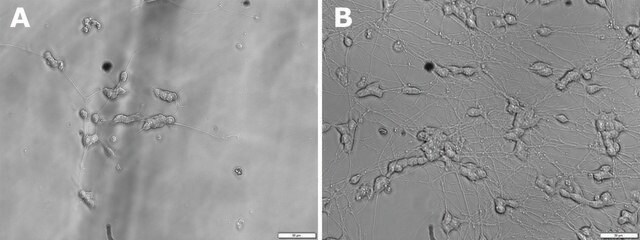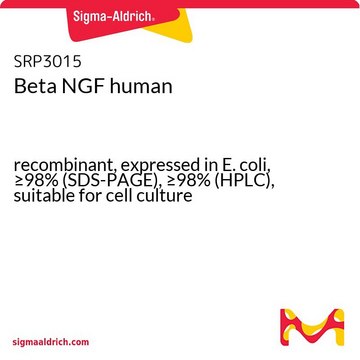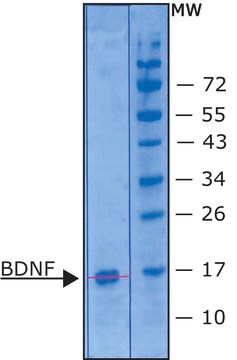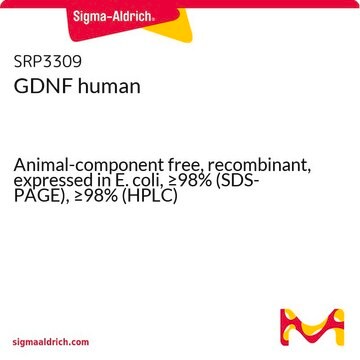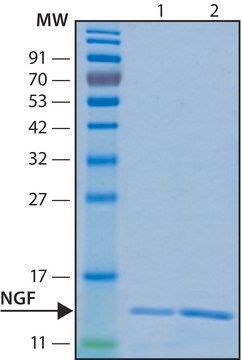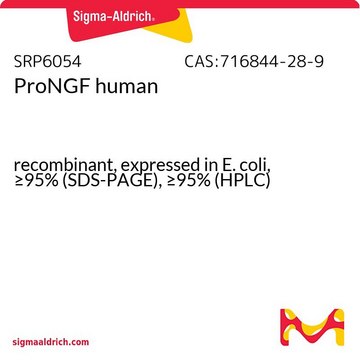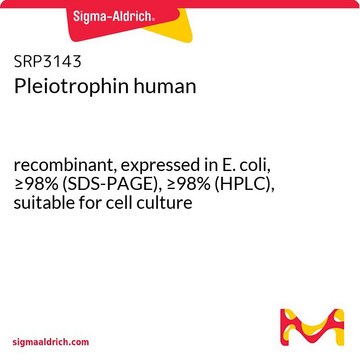SRP6166
HGF human
recombinant, expressed in HEK 293 cells, ≥95% (SDS-PAGE)
Synonym(e):
F-TCF, HPTA, Hepatocyte growth factor, Hepatopoietin-A (HPTA), Scatter factor (SF)
About This Item
Empfohlene Produkte
Biologische Quelle
human
Rekombinant
expressed in HEK 293 cells
Assay
≥95% (SDS-PAGE)
Form
lyophilized
Mol-Gew.
70 kDa (single chain, glycosylated)
Verpackung
pkg of 10 μg
Methode(n)
cell culture | mammalian: suitable
NCBI-Hinterlegungsnummer
UniProt-Hinterlegungsnummer
Versandbedingung
dry ice
Lagertemp.
−70°C
Angaben zum Gen
human ... HGF(3082)
Allgemeine Beschreibung
Biochem./physiol. Wirkung
Physikalische Form
Angaben zur Herstellung
Rekonstituierung
Lagerklassenschlüssel
11 - Combustible Solids
WGK
WGK 3
Flammpunkt (°F)
Not applicable
Flammpunkt (°C)
Not applicable
Analysenzertifikate (COA)
Suchen Sie nach Analysenzertifikate (COA), indem Sie die Lot-/Chargennummer des Produkts eingeben. Lot- und Chargennummern sind auf dem Produktetikett hinter den Wörtern ‘Lot’ oder ‘Batch’ (Lot oder Charge) zu finden.
Besitzen Sie dieses Produkt bereits?
In der Dokumentenbibliothek finden Sie die Dokumentation zu den Produkten, die Sie kürzlich erworben haben.
Unser Team von Wissenschaftlern verfügt über Erfahrung in allen Forschungsbereichen einschließlich Life Science, Materialwissenschaften, chemischer Synthese, Chromatographie, Analytik und vielen mehr..
Setzen Sie sich mit dem technischen Dienst in Verbindung.